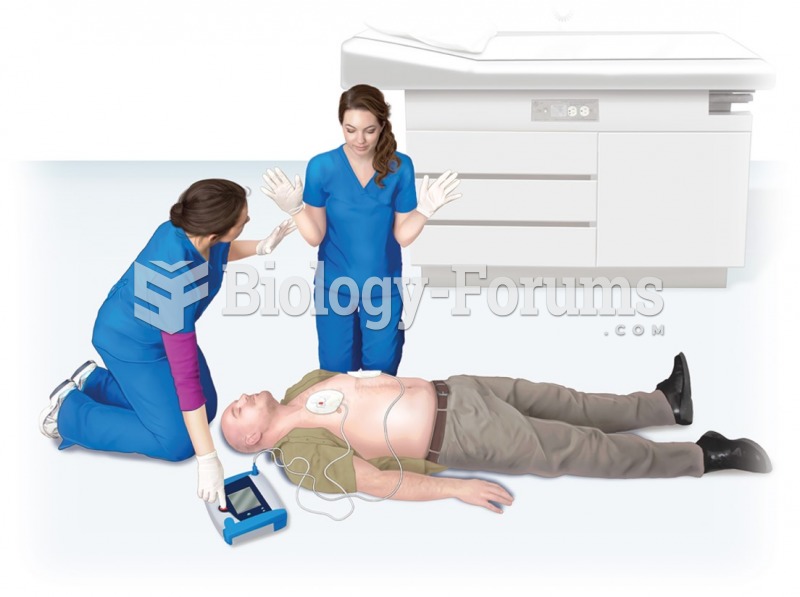|
|
|
Asthma-like symptoms were first recorded about 3,500 years ago in Egypt. The first manuscript specifically written about asthma was in the year 1190, describing a condition characterized by sudden breathlessness. The treatments listed in this manuscript include chicken soup, herbs, and sexual abstinence.
Everyone has one nostril that is larger than the other.
For pediatric patients, intravenous fluids are the most commonly cited products involved in medication errors that are reported to the USP.
According to research, pregnant women tend to eat more if carrying a baby boy. Male fetuses may secrete a chemical that stimulates their mothers to step up her energy intake.
The first oncogene was discovered in 1970 and was termed SRC (pronounced "SARK").







